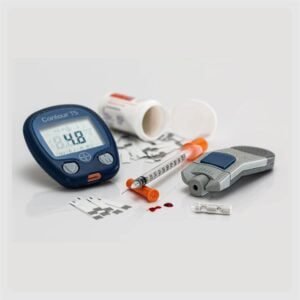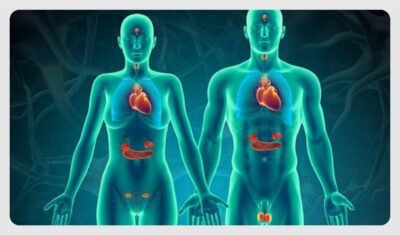Which Hormone Deficiency is Responsible for Diabetes Mellitus

Diabetes mellitus is a chronic metabolic disorder that affects millions of individuals worldwide. It occurs when the body is unable to regulate blood sugar levels properly. While various factors contribute to the development of diabetes, which hormone deficiency is responsible for diabetes mellitus and plays a crucial role in its onset and progression.
Understanding Diabetes Mellitus
What is Diabetes Mellitus?
Diabetes mellitus, commonly referred to as diabetes, is a condition characterized by high blood sugar levels. It happens when the body generates insufficient insulin or fails to use the insulin it produces efficiently. Insulin is a hormone that plays a vital role in regulating blood sugar, allowing cells to absorb glucose from the bloodstream and use it for energy.

Types of Diabetes
There are two primary types of diabetes:
Type 1 Diabetes
An autoimmune disorder called type 1 diabetes occurs when the immune system assaults and kills the cells in the pancreas that produce insulin. This deficiency in insulin production results in elevated blood sugar levels, requiring individuals to take insulin injections to survive.
Check This – Is Pineapple Good for Diabetics?
Type 2 Diabetes
Type 2 diabetes is more common and usually develops later in life. It’s often associated with insulin resistance, where the body’s cells do not respond effectively to insulin. Over time, the pancreas struggles to produce enough insulin to overcome this resistance, leading to high blood sugar levels.
Hormone Deficiency and Diabetes
The Role of Insulin
Insulin, produced by the beta cells in the pancreas, is the hormone central to diabetes. A deficiency of insulin, either due to its inadequate production or ineffective utilization, leads to diabetes mellitus.
Insulin Deficiency and Type 1 Diabetes
In type 1 diabetes, the immune system mistakenly attacks and destroys the beta cells responsible for insulin production. As a result, individuals with type 1 diabetes have an absolute deficiency of insulin and require external insulin administration to survive.
Insulin Resistance and Type 2 Diabetes
Type 2 diabetes often develops due to insulin resistance. The body’s cells become less responsive to insulin signals, making it difficult for glucose to enter the cells. This leads to a relative deficiency of insulin, as the pancreas struggles to keep up with the demand. Eventually, insulin production may decrease over time.
Other Hormones and Diabetes
Glucagon
While insulin lowers blood sugar levels, another hormone called glucagon raises them. Glucagon is produced by alpha cells in the pancreas and stimulates the liver to release stored glucose into the bloodstream. An imbalance between insulin and glucagon can contribute to high blood sugar levels seen in diabetes.

Cortisol and Growth Hormone
The regulation of blood sugar is influenced by hormones like growth hormone and cortisol. Excess levels of these hormones, often seen in conditions like Cushing’s syndrome, can lead to insulin resistance and potentially contribute to diabetes development.
Conclusion
In conclusion, hormone deficiencies, particularly a lack of insulin, are responsible for the onset and progression of diabetes mellitus. Type 1 diabetes results from the absolute deficiency of insulin due to immune-mediated destruction of beta cells, while type 2 diabetes stems from insulin resistance and relative insulin deficiency. Understanding the intricate role of hormones in diabetes is crucial for effective management and treatment.
FAQs
Is diabetes caused only by hormone deficiencies?
While hormone deficiencies are a significant factor, genetics, lifestyle, and environmental factors also contribute to diabetes.
Can hormone replacement therapy cure diabetes?
Hormone replacement therapy can help manage some aspects of diabetes, but it’s not a cure. It’s crucial to address additional aspects as well.
Are all types of diabetes linked to hormone imbalances?
Yes, both type 1 and type 2 diabetes involve hormone imbalances, primarily related to insulin.
How can insulin resistance be reduced?
Regular physical activity, a balanced diet, and maintaining a healthy weight can help improve insulin sensitivity and reduce resistance.












